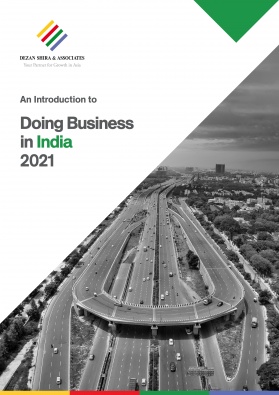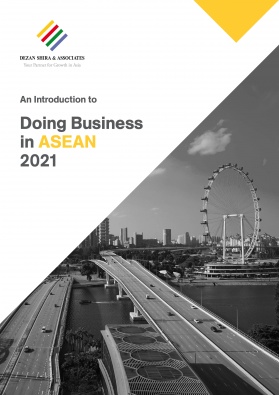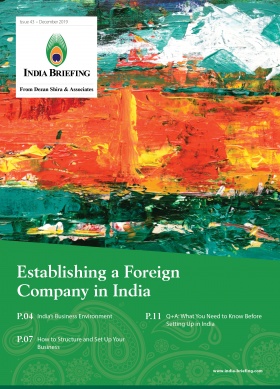Intellectual Property Protections in Bangladesh
We briefly discuss the available intellectual property protections in Bangladesh for market entrants and foreign companies doing business in the country.
More multinational businesses are considering setting up in alternate emerging Asian markets, such as Bangladesh, either to relocate their production plants fully or partially or to spread their operational risks by choosing to expand to multiple cost-competitive regions.
The consumer market is another draw for foreign brands as middle class and affluent populations are rapidly growing in these regions, with rising disposable incomes at hand.
Yet, while the prospects for investment, production, and selling remain attractive, foreign enterprises must pay keen attention to their legal due diligence.
Assessing for potential intellectual property risks and making use of the local legal protections available are important steps to take during the market entry planning and relocation stage. This includes a thorough examination of the local legal and compliance environment in the investment destination and possible exposure to new market risks, such as threats to intellectual property due to bad-faith trademarks etc.
In this article, we continue our comprehensive coverage of doing business in Bangladesh, with a spotlight on the country’s intellectual property rights (IPR) regime.
What are the international agreements and bodies that Bangladesh is party to?
Bangladesh is part of a number of major international bodies and agreements for the protection of intellectual property rights.
Firstly, it participated in the founding of the World Intellectual Property Organization (WIPO) in 1985. WIPO currently administers 26 international treaties and schemes concerning various intellectual property issues.
Additionally, Bangladesh became a legal member of the Paris Convention for the Protection of Industrial Property and the Berne Convention for the Protection of Literary and Artistic Works in 1991 and 1999, respectively, both of which are administered by WIPO.
The Paris Convention was one of the first major international agreements for the protection of intellectual property, including trademarks and trade names, patents, industrial designs, and geographical indications. One example of its benefits is that it allows the holders of patents and industrial designs in one member country to file for those protections in other member countries through a “convention application”, which allows for expedited processing.
The Berne Convention is an international agreement that governs copyright law and protects against the unauthorized reproduction or transmission of a creator’s work by any medium. It requires that member countries provide strong minimum standards for copyright law and automatically recognize copyrights held by citizens of all other member countries of the convention. It also introduced the idea that a copyright exists the moment a creator’s work is finalized, rather than when the copyright is registered.
Furthermore, Bangladesh is a signatory of the Trade-Related Aspects of Intellectual Property Rights (TRIPS) agreement administered by the World Trade Organization (WTO). TRIPS is the world’s most comprehensive multilateral intellectual property agreement and works with governments and other international organizations, such as WIPO, to facilitate the exchange of knowledge and creativity and resolve intellectual property disputes among WTO members. It requires all WTO member countries to provide a number of specific intellectual property protections, including copyrights, patents, industrial designs, geographical indications, and trademarks, and endeavors to help members achieve their own domestic intellectual property policy objectives. Its goal is to create a global intellectual property system that balances innovation, technology transfer, and public welfare.
Unfortunately, Bangladesh is not a member of the international trademark protection regime, including the Madrid Union, the Nice Agreement, or the Singapore Treaty on the Law of Trademarks. All of these agreements are administered by WIPO and enable a streamlined, modern, and harmonized process for the registration and international recognition of trademarks. As such, Bangladesh is currently at a disadvantage with regards to the international recognition and speed of its trademark registration process.
An introduction to Bangladesh’s IP regime: Domestic protections
From a domestic perspective, intellectual property law in Bangladesh is administered by two offices under two ministries: The Department of Patents, Designs, and Trademarks (DPDT) under the Ministry of Industries (MOI) and the Copyright Office under the Ministry of Cultural Affairs (MOCA).
The five main types of intellectual property protections in Bangladesh are: trademark, patent, industrial design, copyright, and geographical indication.
Except for copyrights, which are regulated by the Copyright Office, all of the other intellectual property protections are regulated by the DPDT.
Trademarks
A trademark is an easily recognizable sign, symbol, design, word, or phrase that represents a company or product. All company logos – whether they are Apple’s bitten apple, McDonalds’ golden arches, or Nike’s checkmark (swoosh) – are examples of trademarked images.
Bangladesh’s Trademark Act, 2009 and Trademark Rules, 2015 set the terms for all trademark applications, registrations, refusals, etc. in the country.
Anyone can apply for a trademark, regardless of whether they are an individual or an entity, domestic or foreign. A foreigner or entity may file a trademark application through their representative or authorized lawyer in Bangladesh, who becomes the foreigner’ or entity’s power of attorney. Trademarks are registered with the DPDT through an application that contains the following:
- Particulars of the mark/logo/device prints or representation
- a) Where the applicant is an individual, the applicant’s name, address, and nationality, and b) Where the applicant is an entity, the signatory’s name, and position
- Status of the applicant (whether they are merchandisers, manufacturers, or service providers)
- Specification of the goods/services/class
- Date at which the mark’s use began or is proposed to begin in Bangladesh
- Power of attorney authorization to the lawyer or assignee, if applicable
- Application fee
Where the applicant is a foreigner, the application must be filed at the Head Office or Trademark Registry that has territorial jurisdiction over the address provided as the company’s principal place of business in Bangladesh.
Upon receipt of the application, the Registrar provides the applicant with an automatically generated receipt containing details, such as the application number and application date. The Registrar then reviews the application and examines the trademark, comparing it to existing trademarks to ensure that it is distinct.
The Registrar then either accepts or rejects the application, or requests that the applicant make a correction or modification. If the Registrar rejects the application, the applicant will receive a letter stating the cause for rejection. The applicant may then reply to this letter and seek a hearing within three months. If the applicant chooses not to appeal the rejection, the application is deemed to be abandoned. If the Registrar accepts the application, the applicant will receive a journal notification from the Registrar for the advertisement of the mark and will be required to deposit journal fees, after which the DPDT shall send the mark to the Bangladesh Government Press (BG Press) for publication.
Any person may give notice of opposition on statutory grounds to the Registrar with regards to the certification of the new trademark. If no one appropriately opposes the trademark within two months of the date at which the BG Press publishes the mark, the DPDT informs the applicant of this and requests payment of the certification fees.
Registered trademarks are valid for seven years following the date of application and after this period, may be renewed for successive periods of 10 years. Renewal fees for the trademark must be paid within six months of the date of expiration. Late renewals are available for up to four months following expiration with a late fee. Extensions are granted at the Registrar’s discretion and require additional fees.
If infringed upon, the owner of the trademark may seek civil or criminal remedies. Civil remedies can provide the trademark owner with search orders, injunctions, accounts of profit, and civil damages from a court of law. Criminal remedies may result in fines, imprisonment, and confiscation of the infringing copies for the accused.
Patents
A patent is the exclusive right to make, use, or sell an invention or process for a set period of time by a government authority. The Patents and Designs Act, 1911 and the Patent and Design Rules, 1933, set the terms for all patent and design rights in Bangladesh. These laws allow for a maximum patent term of 16 years, after which time the invention or process becomes part of the public domain and competitors may freely reproduce, redesign, and market the invention without the original patent holder’s consent.
A patent may be filed by the true inventor of the invention or process, or their assignee or legal representative. These individuals may file the patent either alone or jointly with another person, regardless of whether that person is a Bangladesh citizen or a foreigner. A foreigner may file a patent application through their assignee or an authorized lawyer in Bangladesh, who becomes the foreigner or entity’s power of attorney.
There are two categories under which patents may be filed in Bangladesh:
- Ordinary application
- Convention application (claiming priority from a convention country, for example, a member country of the Paris Convention)
Patents are registered with the DPDT through an application containing the following:
- A forwarding letter addressed to the Registrar
- The applicant’s name, address, and nationality
- Two sets of specifications, consisting of description, claims, abstract, and formal drawings, if any
- One set of drawing sheets, if any, on transparent tracing paper, with duplicate in photocopy.
- Legalized deed of assignment, if any
- Power of attorney authorization to the lawyer or assignee, if applicable
- Certified copy of the foreign patent, in the case of priority applications
- Prescribed official fees
Upon receipt of the application, the Registrar notifies the applicant of the receipt and then advertises the drawings, if any, for public inspection. Any person may give notice of opposition on statutory grounds to the Registrar with regards to the grant of the patent. If no one appropriately opposes the patent within four months of the date of advertisement, the DPDT informs the applicant of this and requests payment of the sealing fees. After the fees are paid, the DPDT Controller grants the patent with the official seal of the Patent Office.
If infringed upon, the owner of the patent may seek civil remedies, which may provide the patent owner with search orders, injunctions, accounts of profit, and civil damages from a court of law.
Industrial design
According to WIPO, an industrial design is the ornamental aspect of an article and may consist of three-dimensional features, such as the shape of an article, or two-dimensional features, such as patterns, lines, or color. The Patents and Designs Act, 1911 and the Patent and Design Rules, 1933 set the terms for all patent and design rights in Bangladesh.
An industrial design may be filed by the proprietor of a new or original design, or their assignee or legal representative. A foreigner may file an industrial design application through their assignee or an authorized lawyer in Bangladesh, who becomes the foreigner’s power of attorney.
There are two categories under which industrial designs may be filed in Bangladesh:
- Ordinary application
- Convention application (claiming priority from a convention country, for example, a member country of the Paris Convention)
Industrial designs are registered with the DPDT through an application containing the following:
- The applicant’s name, address, and nationality
- Four copies of the design, clearly showing design features from different perspectives and labelling the perspectives, and including drawings, photographs, or specimens of the design, if any
- Statement of Novelty
- Endorsement of disclaimers
- Classification of goods in the design under one or more of the 14 described classes of goods
- Power of attorney authorization to the lawyer or assignee, if applicable
- Certified copy of the foreign industrial design registration, in the case of priority applications
- Prescribed official fees
Upon receipt of the application, the Registrar notifies the applicant of the receipt, subjects the designs to Formality Examination and Novelty Examination, and advertises the description of the designs for public inspection. Any person may give notice of opposition to the Registrar on statutory grounds with regards to the certification of the design. If no one appropriately opposes the design within six months of the date of advertisement, the DPDT informs the applicant of this and requests payment of the certification fees. After the fees are paid, the DPDT Controller registers and certifies the design.
The initial period for a registered and certified industrial design is five years. This design protection can be extended up to two terms of five years, for a maximum total period of 15 years. There is no option to file for a late renewal.
If infringed upon, the owner of the registered design may seek civil remedies, which may provide the design owner with search orders, injunctions, accounts of profit, and civil damages from a court of law.
Copyright
A copyright is the exclusive right to publish or produce an original piece of work that required significant mental activity to create, such as a work of art, literature, poetry, music, graphic design, film, software, architectural design, or website content. The Copyright Act, 2000 and Copyright Rules, 2010 set the terms for copyrights in Bangladesh.
Copyrights in literary, musical, dramatic, or artistic work are protected for the entirety of the creator’s lifetime and 60 years following the creator’s year of death. For works that may not have a single individual creator, such as cinematographic films, computer programs, photographs, or sound recordings, the copyrights are valid for 60 years following the year of publication.
A copyright registration may be initiated by the author, publisher, owner, etc. of the work to be copyrighted, or by the assignee or legal representative of that person or entity. Copyrights are registered with the Copyright Office through an application containing the following:
- Photograph of the applicant
- Declaration of the usefulness of the copyright
- Copies of the work to be registered
- Original affidavit
- Transfer deed of work in stamp paper, if applicable
- Power of attorney authorization to the lawyer or assignee, if applicable
- Memorandum of Association, Business or Trade License, Tax Identification Certificate, where Applicant is a company
- Appointment letter of assignee, if applicable
- Application fee
Upon receipt of the application, the Registrar notifies the applicant of the receipt. If no one objects to the copyright application, the Registrar enters the particulars of the work into the Copyright Register and sends copies of the entries made to the concerned parties.
If infringed upon, the owner of the copyright may seek civil, criminal, or administrative remedies. Civil remedies can provide the copyright owner with search orders, injunctions, accounts of profit, and civil damages from a court of law. Criminal remedies may result in fines, imprisonment, and confiscation of the infringing copies for the accused. Administrative remedies can result in the Registrar banning the import or distribution of the infringing copies in Bangladesh.
Geographical indication
According to WIPO, a geographical indication (GI) is “a sign used on products that have a specific geographical origin and possess qualities or a reputation that are due to that origin”. In addition to agricultural products, GIs may apply to qualities attributable to human factors found in the place of origin, such as manufacturing techniques, traditional knowledge, and traditional cultural expression. Examples of products with GIs include Colombian coffee, Thai silk, Compté cheese (France), Swiss watches, and in Bangladesh’s case, Jamdani fabric.
The application for a GI must be made by an association, not an individual. This is because there is a great deal of coordination that must occur in order to perfect the production process of a product suitable for a GI. Some of the steps to be taken include evaluating the uniqueness and market potential of the product or process, strengthening the coordination and alliance among the local producers, and establishing agreed-upon production standards and an enforcement scheme for those standards among local producers. It may take several years to develop an appropriate GI scheme.
Bangladesh’s Geographical Indication Goods (Registration & Protection) Act, 2013 and Geographical Indication Goods Rules, 2015 set the terms for GIs in the country. The DPDT is the relevant authority for all GI matters. Internationally, GIs are protected by the Lisbon Agreement for the Protection of Appellations of Origin (under the Paris Convention for the Protection of Industrial Property, administered by WIPO), the Madrid System for the International Registration of Marks (administered by WIPO), and bilateral agreements between different countries.
Registered GIs are valid for five years, after which time the association must re-apply for registration. Any misuse of the laws protecting GIs or attempt to illegitimately obtain a GI certificate by persons or associations other than the owners of the GI may result in criminal penalties including imprisonment for three years and/or a fine of BDT 200,000.
About Us
India Briefing is produced by Dezan Shira & Associates. The firm assists foreign investors throughout Asia from offices across the world, including in Delhi and Mumbai. Readers may write to india@dezshira.com for more support on doing business in in India.
We also maintain offices or have alliance partners assisting foreign investors in Indonesia, Singapore, Vietnam, Philippines, Malaysia, Thailand, Italy, Germany, and the United States, in addition to practices in Bangladesh and Russia.
- Previous Article Access India: How UK Businesses Can Take Advantage of the 2021 Enhanced UK-India Trade Partnership Deal
- Next Article India-Italy Trade and Investment: What Should Foreign Investors Note








